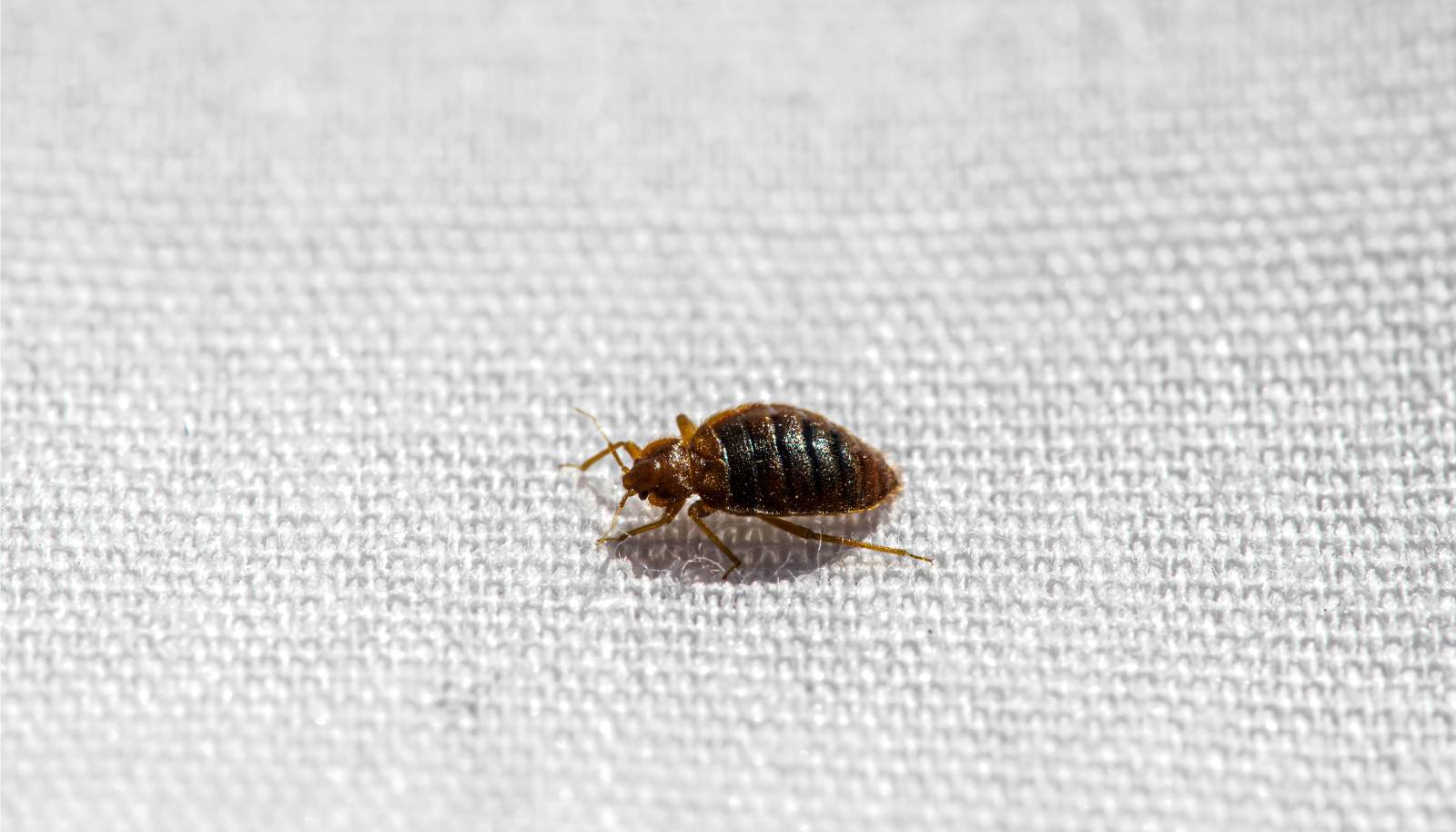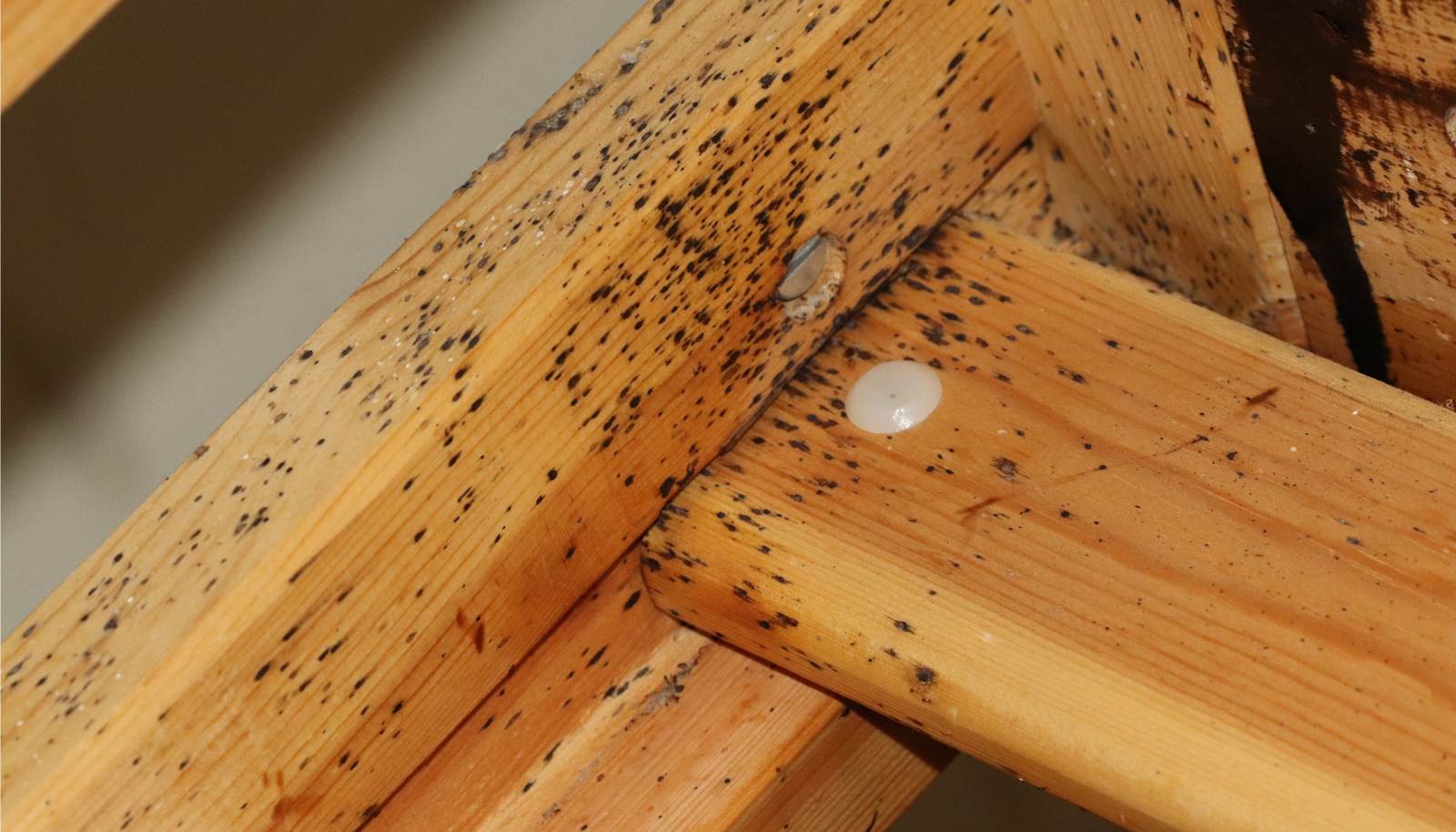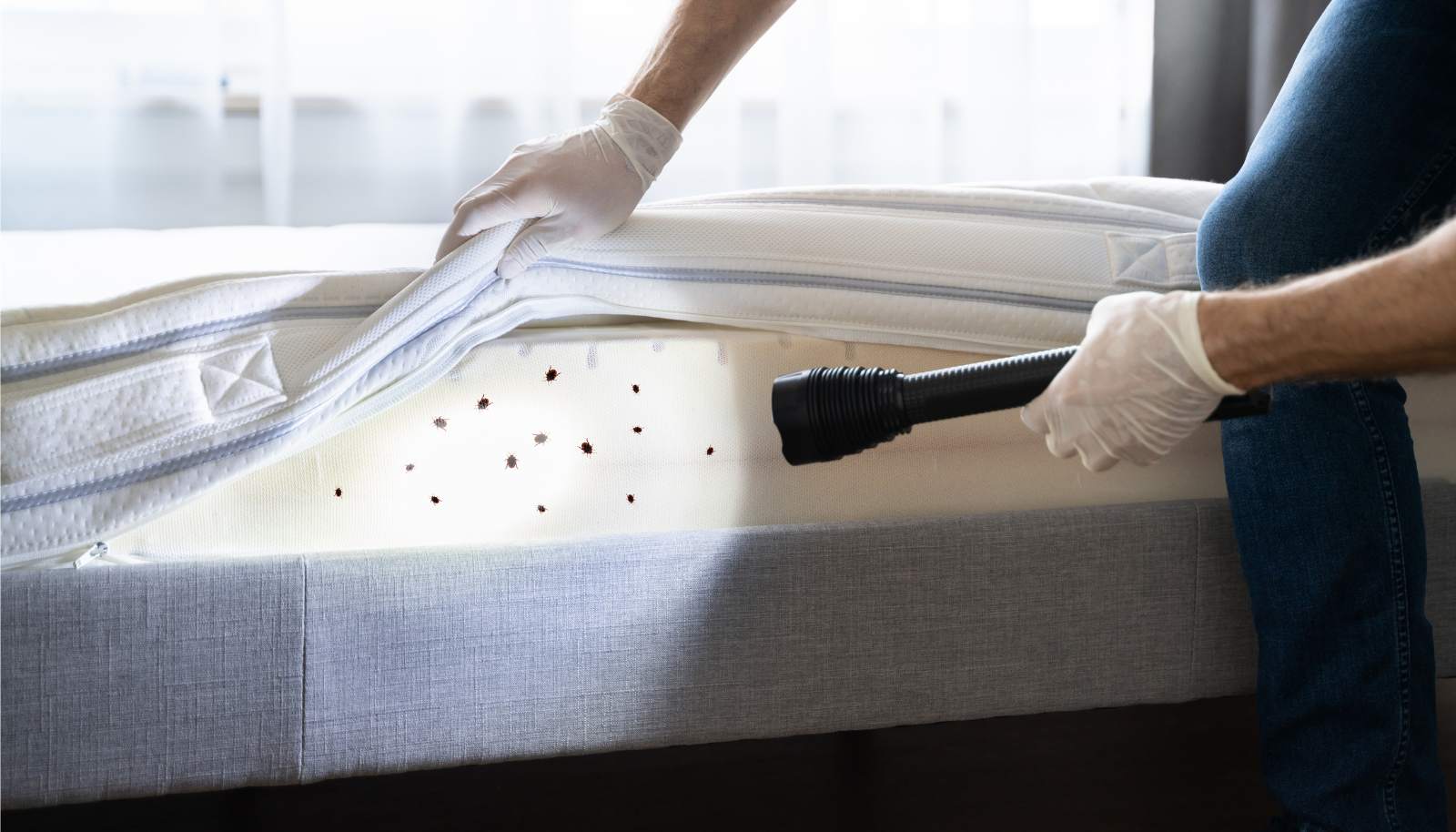The itching during the night. The bite marks when you wake up. The blood-stained pillowcase.
All the signs are there — you’ve got bed bugs. You’re scrambling to learn how to eradicate your unwelcome guests, but you’ve got questions first.
You want to know how much time you have, how fast they multiply, and if you need to worry about other rooms.
Don’t panic; we’ve got you covered. We are here to help you better understand what you’re dealing with. This article covers how quickly bed bugs can multiply, how they get around, and how to wipe them out for good.

Table of Contents
- How Fast Do Bed Bugs Spread? Bed Bug Infestations and Moving Room-to-Room
- How Easy Is It for Bed Bugs To Spread?
- Commonly Asked Questions About How Fast Bed Bugs Can Spread
- 4 Ways To Stop the Spread of Bed Bugs
- Eliminate the Spread of Bed Bugs With Pure Environmental
How Fast Do Bed Bugs Spread? Bed Bug Infestations and Moving Room-to-Room
How fast do bed bugs transfer? How quickly do they populate? The answer to either question is — it depends on several factors.
Some of the factors include:
- The number of bed bugs currently present
- Their living conditions, such as temperature and humidity levels
- Available food source
For example, infestations can happen fast because you only need two bed bugs to mate. If there are just two, it could be a slower infestation. But if you have 10 or even more, your infestation can happen even quicker.
If you’re concerned about bed bugs, Pure Environmental can help. Our bed bug experts in Portland and Tacoma can get the bed bugs out and have your home back to normal in less than 24 hours. You can request a free estimate today.
How Do Bed Bugs Spread?
Let’s first address the common myth that bed bugs can fly or jump.
Bed bugs get around by crawling or hitchhiking. They do not fly or jump.
You can inadvertently introduce them anywhere inside or outside your home.
They can attach onto:
- Your body
- Clothing
- Luggage
- Furniture; or
- Other household items
And once they’re in your home, they can crawl from room to room via the floor or cracks and openings in walls, floors, or ceilings.
How Easy Is It for Bed Bugs To Spread?
Bed bugs can spread easily and quickly. They are fast crawlers — and if they have someone to hitch a ride with, they’re even faster.
Consider this scenario:
Your husband just returned from a work trip. He arrives home and tosses his suitcase on the bed before showering and then relaxing. But what neither of you has realized is that a few creepy crawlies made their way into his suitcase before he left the hotel room. Now, they’ve found a new, warm home with twice the blood dinner available. And not only do you now have bed bugs in your bedroom, but before you notice an issue, you’ve carried a couple to your living room couch.
Does it make your skin crawl? It can happen that easily!
How Far Can Bed Bugs Spread?
Bed bugs can travel from room to room in mere minutes. They can travel about 100 feet during the night but have been known to move as fast as four feet per minute.
Remember those bed bugs in your bed and on your couch? During the night, some have made their way to another room — waiting to begin multiplying.
Commonly Asked Questions About How Fast Bed Bugs Can Spread
How Fast Do Bed Bugs Multiply?
Bed bug infestations can grow in a matter of weeks or months. Female bed bugs typically lay between one and seven eggs per day for about 10 days after a blood meal. And they can lay anywhere from 200 to 500 eggs in a lifetime. And eggs hatch quickly (in 10-15 days). A new bed bug is ready to reproduce in about six weeks.
However, bed bugs can only lay eggs after a blood meal — so having a readily available food source (you) is an important factor in answering, “How fast do bed bugs spread?”
What’s the Most Common Cause for Bed Bugs Spreading?
Bed bugs like to catch a ride on:
- Clothes
- Luggage; and
- Humans
They like ideal temperatures of between 21-32 degrees Celsius (70-90 degrees Fahrenheit) and want to stay as close to their blood food source as possible — you. Because of this, they travel to areas that humans most commonly occupy, such as your bed and living room furniture.
How Long Does It Take for an Infestation To Show Up?
A bed bug infestation differs from home to home. An infestation can take several weeks to even a few months to be noticed. If the infestation is small, with only a few bugs, the signs may take longer to become apparent. Our average infestation time before detection by the resident is 3-4 months.
Some common bed bug signs to look for are:
- Blood stains on pillowcases or sheets
- Black dots about the size of a period (bed bug poop)
- White oval eggs (looks similar to salt crystals)
- Pale yellow skin
- Sweet, musty odor
- Actual bed bugs

4 Ways To Stop the Spread of Bed Bugs
You understand the answer to, “How fast can bed bugs spread?” But now you’re ready to stop them in their tracks. Let’s take a look at the steps that can help right away to prevent the spread.
#1: Inspect What You Bring Into Your Home
You got these bloodsuckers from somewhere. Make sure you aren’t bringing additional bed bugs home from work, a friend’s house, or other places you frequent.
This will not only help you determine where you might have gotten them from, but it’s a smart first step in ensuring you don’t add to the population.
Take a good look at your:
- Clothing
- Shoes
- Outerwear
- Bags
- Purses
- Suitcases; and
- Anything else that might be a good stowaway place
In addition, you should also inspect what you’re leaving the house in and with. You don’t want to be responsible for carrying bed bugs to anyone else’s home. If someone has a known infestation the best thing they can do to stop the spread is put clothing on directly out of the dryer before they leave there home.
#2: Isolate and Treat Affected Items
If you find any evidence of bed bugs, seal all items in large, clear plastic bags. Clear bags help you see any evidence of bugs.
Seal suspicious clothing and linens, including:
- Shoes
- Coats
- Pillows
- Sheets
- Comforters and blankets
- Stuffed animals
- Small rugs and mats
- Bags and suitcases
#3: Vacuum Common Bed Bug Hiding Spots
Vacuuming can help reduce the number of bed bugs in your home, especially where there are groups or clusters of bed bugs hiding. It’s not 100% effective in eradicating bed bugs, but it will help to decrease the number.
To have the best outcome with vacuuming bed bugs:
- Make the suction as strong as possible.
- Use a crevice tool attached to the vacuum.
- Do not press too hard, so you don’t flick the bugs off.
- If there’s a vacuum bag, remove it and seal the bag with tape. Place the bag into a plastic bag to dispose of. Do these steps outside.
- If there is no bag, empty the canister outside into a plastic bag and seal it with tape.
- Wash the removable container in hot soapy water. Wash, freeze, or discard and replace any filters.
Bed bugs are glued to surfaces, so it can be difficult to fully remove them all at once. You’ll likely need to repeat the vacuuming to control an infestation.
You may need to add additional techniques, such as …
- Laundering
- Freezing; or
- Heat treatments
… to fully remove and eliminate the bed bugs.
And even if you try all of these methods, there’s no guarantee you’ll be free of your bed bug problem. Calling a professional may be your only way to eliminate the infestation for good. Pure Environmental is happy to offer you a free estimate to help you best decide how to get rid of the bed bugs.
#4: Seal Gaps and Holes
Sealing gaps and holes and making simple repairs to your home can help control the spread of bed bugs.
Consider following these guidelines to block common bed bug paths:
- Use caulk along moldings and joints to seal off places where bed bugs like to hide. Look for small cracks and crevices that are large enough for a dime to slide under.
- Look for holes where old screws or hardware holes have previously been in wood furniture. Fill in any holes that you can in furniture.
- Check out wall outlets and switch plates to ensure there are no gaps that could allow bed bugs to leave or enter a room.
- Repair or remove any damaged or peeling wallpaper.
- Repair any cracks in walls or floors.
- Seal around any pipes that come through the wall, ceilings, and floors.
Bear in mind, while making these adjustments to your home could help limit or prevent the spread of bed bugs, it is not going to be effective at controlling or ridding yourself of an existing infestation.

Eliminate the Spread of Bed Bugs With Pure Environmental
Bed bugs can be hard to control without the help of experienced bed bug professionals.
At Pure Environmental, we are trained to detect and isolate bed bug infestations. And we do so with heat to eradicate your bed bug issue in a single environmentally-friendly treatment. This ensures your bed bug problem is taken care of quickly and safely.
There’s no need to worry or stress over the question, “How fast do bed bugs spread?” We’ll take care of it for you, so it’s no longer a problem.
If you’ve tried to get rid of bed bugs without much success or just discovered you may have bed bugs, give us a call today or click below to request your free estimate. We can help you get back to a peaceful, itch-free night’s sleep.
Recent posts
- Advice From the Pros: How To Hire a Contractor for Home Renovations
- After the Fire: What To Expect From Smoke Damage Restoration Services
- Home Insurance During Renovations: What Is Covered and What To Know Before Getting Started
- Mitigation and Restoration: Understanding the Difference Between the Two and Why They’re Both Necessary
- Should You Stay or Should You Go? Know When To Walk Away From a House With Mold
